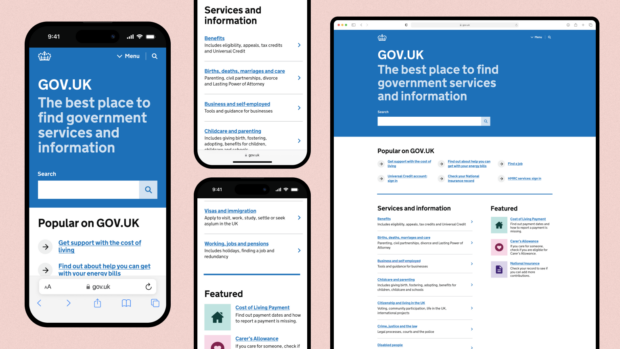Ahead of technology- and data-led reforms, officials have been invited to vent their frustrations with how Whitehall works
Credit: Hash Milhan/CC BY 2.0
Civil servants have been invited to air their frustrations with how government works, as well as their ideas about how to improve it, as chief operating officer Alex Chisholm published the first official document on his plans for reform.
In an email this week, Chisholm invited civil servants to give feedback on a “prospectus” for reform that promised to look at changes across “the whole system, at every level”.
The document, entitled Our Civil Service: shaping our future together, says that there is a clear need for modernisation across government. It reiterates several goals put forward by ministers in recent months: to make the civil service less London-centric, to improve the use of innovative technology and improve career progression for officials.
“If we improve the way we work, embrace new technologies and improve our culture we can make the best possible difference for citizens across the country and that is why we choose to be civil servants,” it says.
Related content
- New Cabinet Office head Alex Chisholm to ‘lead ongoing transformation’ of civil service
- Coronavirus has shown Whitehall can avoid getting ‘bogged down’ in bureaucracy – civil service chief
- Civil service chief says Covid response shows government’s ability to be ‘more flexible, more digital, more data-based’
It paints a picture of a government where policymaking is more inclusive, where time-consuming processes are digitised or automated, and where there are concrete incentives for innovation.
But the prospectus makes clear that change should not only come from the top down.
“Meaningful change relies on a complete picture of what works and what doesn’t. This can only be understood by collecting a diverse range of views,” the document says. “Now is the time to be ambitious. If you’ve felt frustrated by the way things work, held back or lacked the traction you need to try a new idea, now is the time to speak up.”
Concerns already raised in a recent survey included poor collaboration across teams, access to learning and development, poor communication and outdated infrastructure, which officials said were “stopping you from delivering the best possible services”.
Pay and benefits, management, hiring and transparency were also among civil servants’ biggest gripes.
A questionnaire that has been published alongside the prospectus asks civil servants what motivates and frustrates them, and asks them to put forward the one big change they would make given the chance.
It also asks what the barriers are to improving diversity, and to introducing innovative ways of doing things.
And it seeks suggestions to tackle a frequently cited problem in the civil service – that officials find themselves unable to work across organisational boundaries, or what outgoing cabinet secretary Sir Mark Sedwill recently referred to as “turfy behaviours” in teams.
“The survey confirmed our passion for serving the public and pride in how we responded to Covid-19,” the prospectus says.
‘A movement – not a top-down initiative’
In his message inviting feedback on the prospectus, Chisholm said he wanted the reforms to take into account the civil service’s response to the Covid-19 pandemic and its preparations for Brexit.
“There is no central monopoly on knowledge, and no single transformative change: real change for the better will only come as a result of collective endeavour”
Civil service COO Alex Chisholm
“There is a lot we can learn from these experiences about how we strengthen our structure and culture and method,” he said. “We must address the frailties, fault lines and barriers which stand in the way of serving citizens with excellence. This is vital if we are to face with confidence the challenges of today and those that lie ahead.”
He said questions he had been asked at this year’s Civil Service Live event revealed “both an enthusiasm for reform and consensus around the areas which need to change: bureaucracy, risk aversion and old systems and technologies which hold us back”.
And he said reform must be a “collective effort”.
He said: “I would like to invite you to explore with me, the ways we can do even better. This is a call to join a movement, not a top-down initiative.
“There is no central monopoly on knowledge, and no single transformative change: real change for the better will only come as a result of collective endeavour across the whole civil service.”



